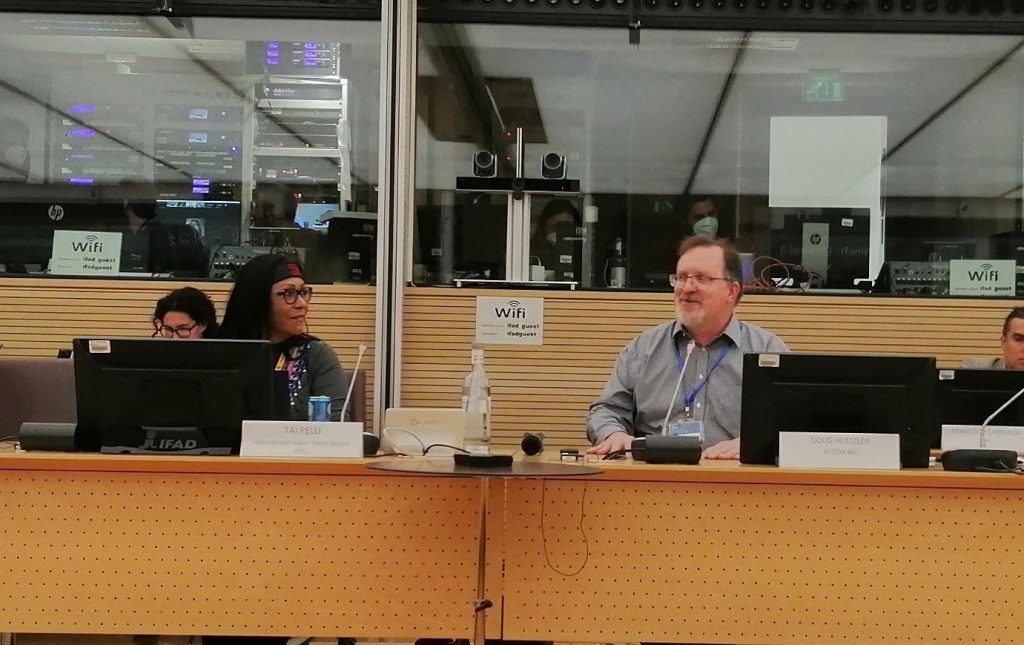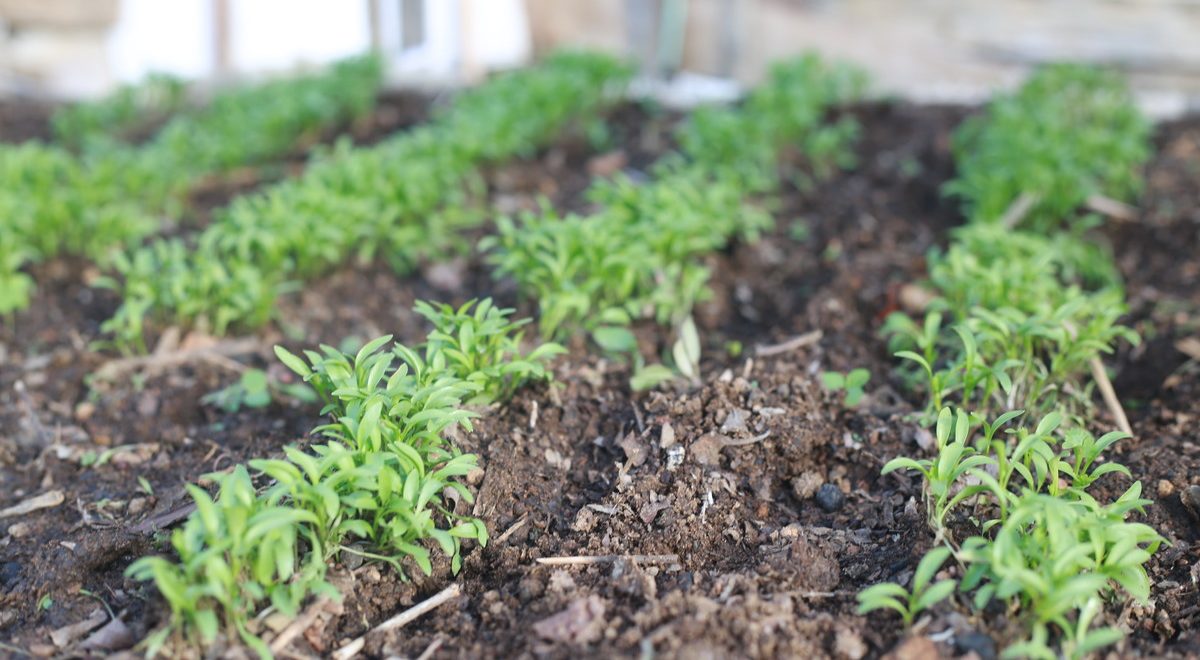Many of us are still learning how to celebrate the harvest holiday of Thanksgiving with a new understanding of our history that embraces our collective future without relying on a national myth that has covered up the reality of land grabbing and genocide.
We must recognize and stop the new wave of colonialism that is building. I am speaking of the growing takeover of forest, grassland, and farmland by powerful financial actors. This is resulting in ongoing loss of land by communities, harming the right to food and creating greater inequality. We must stand with Indigenous Peoples and local communities who live in relationship to land and water and care for the life that grows from it. We must find ways of creating land justice and making meaningful land reparations to those who have been dispossessed.
Much of this new colonialism is being perpetrated in the name of new myths of false solutions to climate change. Wealthy investors and asset managers are claiming they will manage land for carbon sequestration using so-called “climate-smart” agriculture. In reality, these big money managers hope to profit from rising land prices and any market created for carbon credits or to be able to simply claim they will someday use the land to offset their continued carbon emissions from investments in petroleum and agribusiness.
Harnessing the UN Land Tenure Guidelines
A few weeks ago, I had the pleasure of moderating a panel for the UN Food and Agriculture Organization on the 10th Anniversary of the UN Guidelines on Land, Fisheries and Forests. Our panel included Tai Pelli, a member of the United Confederation of Taino People, representing the International Indian Treaty Council, and the International Planning Committee for Food Sovereignty. Tai is a member of the active Taino diaspora that connects the United States and the Caribbean in spite of the colonialist dispossession that tried to erase First Peoples and cultures.

Photo: Alberta Guerra/ActionAid.
At the anniversary event, Tai reminded the delegates from UN institutions, governments, and the World Bank that Indigenous Peoples and local communities continue to “suffer countless and endless cases of human rights violations, forced displacement, abuse, disappearances and killings of those who defend their territories and their rights, including the many cases where they not only destroy homes, but also destroy farms and crops; the topics addressed by these very guidelines that we celebrate today.”
The latest wave of colonialism is driven by the expansion of large financial companies, including managers of retirement savings, into grabbing up land. It includes overt forms of violence often perpetrated by local actors who grab land that is later transferred to global companies. A further form of violence is simply the denial of the legitimate tenure rights recognized by the UN Land Tenure Guidelines to those whose communities have long used forests and grasslands as common areas. This is the kind of violence being funded in Brazil by TIAA, as they ignore the UN Tenure Guidelines and Brazilian law, purchasing land and doing business with those who have grabbed it from communities, whose rights as peasants, descendants of former slaves or Indigenous Peoples have not been acknowledged.
Land-based colonialism
We must also recognize that here in the United States, we owe land justice to the Indigenous Peoples who have suffered genocide and forced displacement as well as to the Black farmers and rural communities who have lost their lands even in recent decades due to racism and discriminatory policies. Land is needed by landless farm workers, aspiring young farmers, and rural communities who have lost their forms of livelihood and local small businesses by the growing takeover of large-scale agriculture.
Just like in Brazil, in the United States, financial actors such as TIAA and wealthy individuals such as Bill Gates have become the largest landholders, expanding and bringing other money managers into this new wave of land-based colonialism. They falsely claim it will benefit food security, even though we know that adequate production is not the problem, it is distribution of the capacity to produce and access food locally and the failure to uphold the human right to food. Large-scale agriculture and corporate food chains destroy livelihoods, destroy biodiversity, and expand the carbon footprint of the food system. This kind of agriculture can not be made “climate-smart.”
Instead, we need to turn to the examples of agroecology around the world where small-scale farms are able to produce diverse food products on smaller amounts of land without the dependence on so much petroleum-based chemicals and fertilizers, massive machines, and distant transport.
Advancing land justice
Tai Pelli lives in Indiana, one of the states where TIAA is expanding its control over industrial agriculture and land. At the 10th anniversary dialogue on the UN Guidelines to Land, Tai called upon us all to:
“Seize the baton! Let’s not just expect implementation to always come from the top; let’s disperse the information and let’s advocate from our trenches. Let’s not allow [the UN Land Tenure Guidelines] to remain on the system’s shelves, perplexing future generations who read them and, faced with so much misfortune, ask themselves at the end of the reading: But then what happened?”
Even though advancing land justice will not be easy, we can follow Tai. We have the Guidelines on what we should do. We can start from the institutions where we should have the greatest understanding of the problem: many of our largest universities, our “land grant” institutions, were founded on the theft and sale of land from Indigenous Peoples. The United States has endorsed the UN Tenure Guidelines, and our government needs to regulate financial actors and prevent land grabbing and concentration of land holdings both at home and by US actors abroad. Those of us at universities or in non-profit institutions need to heed Tai’s advice and start by calling out TIAA and our universities for misusing our resources. By fighting to stop land grabbing, will also get the attention of policymakers at all levels and create space for advancing land justice rather than increasing land inequality.

